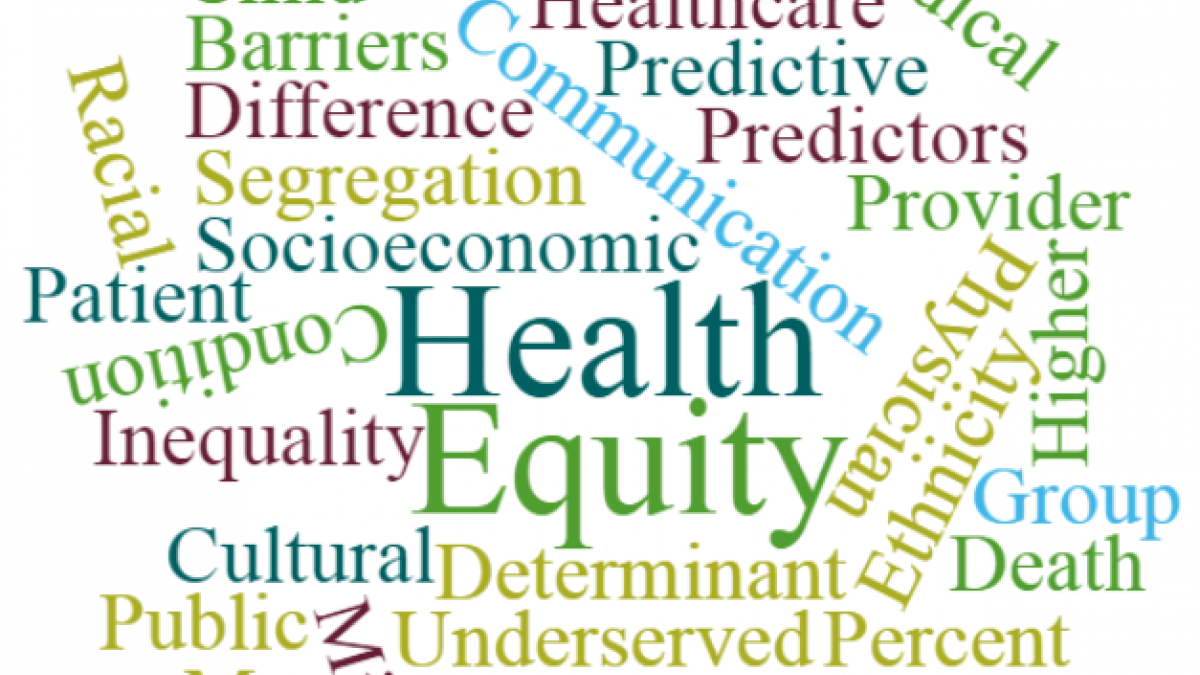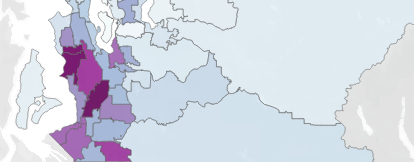
Health equity word cloud
New grant to support study of disparities in COVID testing and mortality
UW EDGE Center researchers have been awarded a COVID-19 Rapid Response Grant from the UW Population Health Initiative. The grant, which was matched by the School of Public Health, will fund research into disparities in COVID-19 testing and health outcomes in King County, with a focus on cumulative impacts in low-income, minority, and health-compromised communities. The research team includes DEOHS Clinical Professor Stephanie Farquhar, Associate Professor Edmund Seto, Ph.D. student Esther Min, and EDGE Center Community Engagement Manager BJ Cummings.
Major US cities are reporting racial disparities in the death rates from COVID-19, with African American and Latino populations experiencing higher death rates than whites. This project will compile data to develop a comprehensive understanding of racial and geographic disparities in COVID-19 testing and deaths in King County and compare any disparities detected to known risk factors for susceptibility t o COVID-19 by race and zip code, including underlying health conditions, environmental conditions and socioeconomic influences such as poverty and access to health care.
o COVID-19 by race and zip code, including underlying health conditions, environmental conditions and socioeconomic influences such as poverty and access to health care.
"We know in King County and other cities around the U.S. that COVID-19 cases, hospitalizations, and deaths differ by race and ethnicity,“ noted Dr. Farquar, the study’s lead researcher. “Our team hopes to add to our understanding of what is driving those differences by looking at environmental conditions, particularly air quality metrics, and socioeconomic influences such as poverty rates and medical insurance coverage."
Min, who previously worked on the research team behind Washington State’s Environmental Health Disparities Map Project, will be compiling the available data. “Many communities have already been struggling with environmental exposure-related disparities,” Min said of the COVID-19 study. “Understanding where the disparities related to COVID are occurring will be important for post-COVID recovery to make sure these same communities aren't left behind.”
The team’s findings are expected to be released by September of this year.

